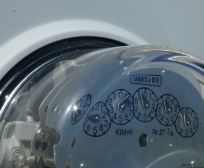 New Jersey Natural Gas on Friday received approval from the New Jersey Board of Public Utilities (BPU) on its rate case settlement agreement, as well as Basic Gas Supply Service (BGSS), Conservation Incentive Program (CIP) and Universal Service Fund (USF) rates. When combined with a $48 million bill credit, the net effect of these rate changes is an overall decrease of 0.2 percent on the typical residential heating customer’s annual bills.
New Jersey Natural Gas on Friday received approval from the New Jersey Board of Public Utilities (BPU) on its rate case settlement agreement, as well as Basic Gas Supply Service (BGSS), Conservation Incentive Program (CIP) and Universal Service Fund (USF) rates. When combined with a $48 million bill credit, the net effect of these rate changes is an overall decrease of 0.2 percent on the typical residential heating customer’s annual bills.
The new rates will go into effect October 1, 2016, while the bill credit will be applied to residential and small commercial customers’ bills from November 2016 through February 2017. When combining the bill credits with the rate changes, a residential heating customer using 1,000 therms a year would see their annual bill go from $970.90 to $968.79, a decrease of $2.11. Customers’ total savings will vary based on individual usage and weather patterns over the four-month period.
“We are pleased the Board of Public Utilities approved our new base rates,” said Laurence M. Downes, chairman and CEO of New Jersey Natural Gas. “We believe this resolution is fair and in the best interests of our customers and company.”
Under the approved base rate agreement, NJNG’s total annual revenue is expected to increase by $45 million, effective October 1, 2016. It includes a return on equity of 9.75 percent with a 52.5 percent common equity ratio, and reflects a rate base of $1.37 billion with an overall rate of return of 6.9 percent. The Southern Reliability Link (SRL), approved by the BPU in Board Orders issued in January and March 2016, continues to progress through the permitting process. As construction has not yet commenced, rate treatment for the project was not included in the new base rates. NJNG expects to request rate treatment for the SRL in a future rate proceeding.
The BPU also approved a five-year extension of NJNG’s Safety and Facilities Enhancement (SAFE) program. The $200 million program will replace the remaining approximately 276 miles of unprotected steel main and associated services in the company’s distribution system. NJNG has been routinely addressing the replacement of these facilities, and in 2015 became the first natural gas utility in New Jersey to eliminate all cast iron from its system. As a part of this program, NJNG will earn an Allowance for Funds Used During Construction (AFUDC) rate on its invested capital during construction, and request rate increases for SAFE spending in annual filings. These annual filings will consider the rate impacts associated with program spending of $157.5 million over its term. As a condition of approval of this project, NJNG is required to file a base rate case no later than November 2019.
[TLS]

For those that are trying to figure out how njng is going to make more money if everone is having their bill going down? it’s very simple they are raising the delivery and standard charges so all the people that do not use njng as their supplier are getting hit with a huge increase! Only the ones that use njng as their supplier are getting a discount on the supply rate which will offset the other increased charges… so in reality the customer lost (especially if you are by another provider you are really going to lose!) as njng just made themselves much more competitive with their new low gas rate Now you cant save money by using a different supplier(they probably were going to lower the gas rate regardless just to stay competitive in the supply market!)
Seems to me that Nj gas has a reasonable rate for the service it provides. There is also competition with oil propane and electric if people want to switch.